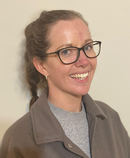Queen Elizabeth’s Grammar School
Grammar school entrance exams for Queen Elizabeth’s Grammar School
Queen Elizabeth’s Grammar School is a grammar school. Grammar schools are state secondary schools that select their pupils by means of an examination taken by children at the age 10 or 11.
The 11 Plus exam is taken by children in their last year of primary school and determines whether they are suitable for a grammar school education.
The Kent Test for Queen Elizabeth’s Grammar School
Queen Elizabeth’s Grammar School uses the Kent Test for admissions via 11 Plus. The Kent Test is an entrance examination taken by children in Year 6 who wish to attend grammar schools in Kent, including the possibility of joining Queen Elizabeth’s Grammar School.
You can learn more about the Kent Test, and view all grammar schools in Kent here: Grammar schools in Kent
You can see a timeline for the Kent Test here, including an interactive timeline based on your child's age: Kent Test timeline
You can view the official Kent Council's Kent Test page here: Kent Test
Kent Test tutors for Queen Elizabeth’s Grammar School
Nik - Check availability
7 Plus, 8 Plus, 11 Plus, Other School Entrance, English & Maths
Nikaan is an experienced and dedicated primary educator with over ten years of teaching experience in the UK and international schools He specialises...
Primary education (2016)
School entrance experience



Frankie - Check availability
11 Plus, Other School Entrance, English, Maths & SEN
Frankie is a qualified Assessor of Dyslexia and Level 7 Specialist Teacher- Assessor in Dyslexia and Literacy Frankie is able to provide assessments...
Online tuition
Primary education (2012)
School entrance experience






Alison - Contact us for availability
7 Plus, 11 Plus, 13 Plus, Other School Entrance, University Admissions, English, French, History, Italian & Spanish
Alison has many years of teaching and examining experience She is an accredited AQA examiner and is a senior examiner (Team Leader) for...
English (1975)
School entrance experience






Click here to access the official website for Queen Elizabeth’s Grammar School


